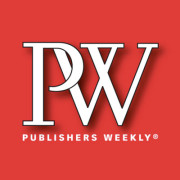Follow Jenny on Instagram, BlueSky, and X.
@factoryjennylee (Insta)
@rebus-readr.bsky.social (BlueSky)
@factorjenny (X)
Unraveling at the Name is an amazing, extraordinary, gorgeous book. These are the best sonnets I’ve seen in ages. Tight and crafty and subtle and cruel and muscular and inventive and Real. The needs, the situations, the analyses of the situations, the rue, the regret, the loss, the gain, the heat, the scenes, the rose the thorns. The non-sonnets are pretty terrific too.
—Alicia Ostriker
Here is a new voice accomplished both in mind and music. Jenny Factor is a poet who is not afraid to dare the extravagant gesture (the fifteen-sonnet heroic crown) or to focus on the minuscule event (a toddler playing trucks in the lamplight). And in either direction, she finds the unexpected, the as-yet-unsaid, the memorable: words and lines which will resonate in the reader’s mind after the book is shut, and before it’s picked up again, as it will be.
—Marilyn Hacker
 In probing “Unstable Singularities,” keeping a “Rendezvous in Greenwich ” or contemplating “A High Cold Bright Full Moon,” Jenny Factor’s speaker in Unraveling at the Name finds “Our sexuality takes form only after some interpreting.” In 37 formal lyrics (some in multiple, time-shifting parts), that maxim is full borne out, as marriage, motherhood, the past, various sex acts and varying complexions come under scrutiny. While a voice warns that “a marriage and the stiff form of all heterosexual culture will fall on you like starch,” Factor’s speaker cheerfully executes “orgiastic shifts in key.”
In probing “Unstable Singularities,” keeping a “Rendezvous in Greenwich ” or contemplating “A High Cold Bright Full Moon,” Jenny Factor’s speaker in Unraveling at the Name finds “Our sexuality takes form only after some interpreting.” In 37 formal lyrics (some in multiple, time-shifting parts), that maxim is full borne out, as marriage, motherhood, the past, various sex acts and varying complexions come under scrutiny. While a voice warns that “a marriage and the stiff form of all heterosexual culture will fall on you like starch,” Factor’s speaker cheerfully executes “orgiastic shifts in key.”
 This is essentially a book about a young woman’s self-discovery and its consequences…[with a] victory of tone that is all the more impressive in a first book. When Factor’s lines swagger, the swagger feels hard-won rather than assumed.
This is essentially a book about a young woman’s self-discovery and its consequences…[with a] victory of tone that is all the more impressive in a first book. When Factor’s lines swagger, the swagger feels hard-won rather than assumed.
…and this inspires both the humor and pain that animate this book. Unlike other recent first books, Unraveling at the Namerefuses to sentimentalize the experience of mothering a very young child: Unraveling at the Name gives us something unfashionable and even startling in these times of “putting children first”: the notion that a loving mother can have an identity separate from her child. The book never preaches this moral, however, and the reader must derive Factor’s feminism (to use another unfashionable word) inductively, as it were…
…[John Frederick] Nims share[s] [Jenny] Factor’s delight in fixed form and…her ability to make verseforms sing with idiosyncracy….Through the unusual vehicle of poetic sequence…When all is said and done, the test for such a book is very simple: do we care what happens to the character? In this case, we do.”
Singing the Stories History Hides
Jenny Factor’s often deceptively casual poems wear their prosodic mastery lightly, combining formal fluency and personal urgency, fulfilling a will to make form out of feeling: “This life I’ve written out and can control.” Unraveling at the Name revolves, unravels even, around a remarkable set of skewed sonnet sequences about love requited and un- (and love’s various alibis and substitutes), desire and sex and their often awkward relationship (what Factor calls the “urgency of appetite”), marriage, coming out and learning to come, lesbian motherhood, and loneliness. A canzone about fisting informs us that “Forms/binds. Form combines. Form liberates,” and this book demonstrates the ways in which all of these propositions can be true, simultaneously and in turn. “My story’s underneath this history./Turn off the radio. I want to sing,” Factor writes, and sing she does.